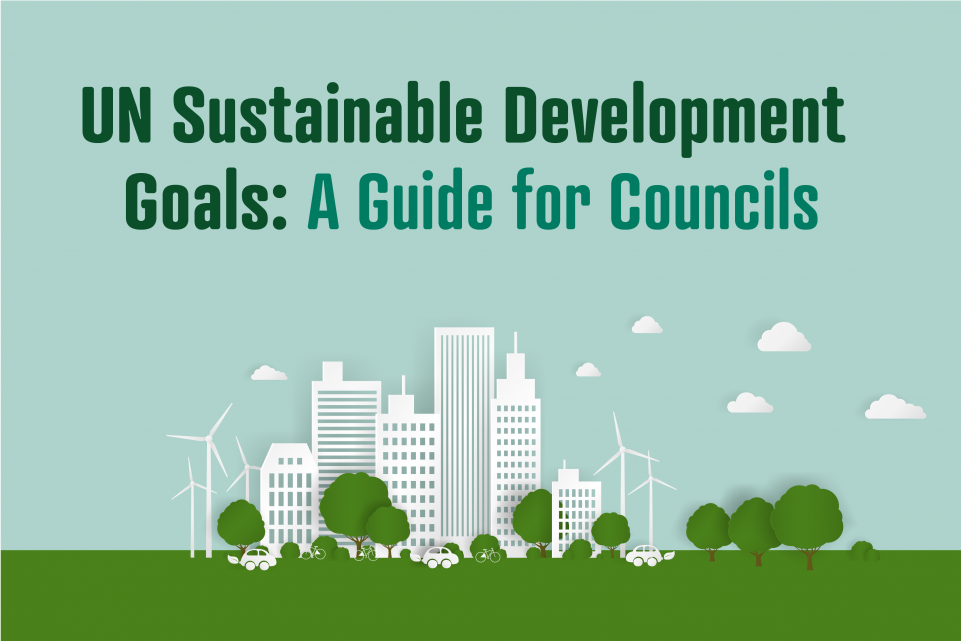This article forms part of the LGA's Re-thinking local think piece series.
Throughout the COVID-19 pandemic calls for a ‘green recovery’ have pressed central government for a package that is in line with the UKs net zero carbon commitments.
For UKSSD these calls often missed a crucial point: throughout this health emergency a spotlight has shone on the unacceptable levels of inequality in the UK.
We continue to be confronted with the inequality and injustice. These are not just the immediate consequences, like the heightened number of deaths of BAME people, but the longer-term impacts – which are likely to be particularly detrimental for young people. We also know that places will recover differently, depending on the industry makeup of their economy, which could lead to further deprivation in areas that have already been struggling.
It was with this in mind that we coordinated a letter to the Prime Minister in June, supported by the Local Government Association (LGA) and 150 leaders from business, civil society and public life, to call for the UN Sustainable Development Goals (SDGs) to be used to frame and future-proof the UK’s recovery from the pandemic.
We know that places will recover differently, depending on the industry makeup of their economy, which could lead to further deprivation in areas that have already been struggling.
Through the goals we can unite the whole of society behind a vision of the future where all people in the UK can live a healthy life, free of injustice and inequality, and avoid catastrophic climate change and ecological breakdown.
While they may be the commitment of central government, it is thought that as many as two thirds of the SDG targets need local action if they are to be achieved. This was recognised by the LGA last year when it committed to ‘playing its part in enabling local government to contribute’ to the goals.
And while the SDGs need councils to be achieved, councils can also get value from working with them.
- The goals help focus efforts on the health and wellbeing of the people who are the furthest behind. Through their cross-cutting principle which commits governments to ‘leave no one behind’, they add legitimacy to councils’ efforts to support those that are marginalised, deprived or discriminated. This in turn can enable councils to leverage the support of other local and national actors as partners in a whole-of-society response to create better social outcomes.
- Engagement supports declarations of a climate emergency and is not contrary to it. The goals help because climate change can’t be tackled in isolation from social and economic issues. Addressing climate change depends on changes in the way we live our lives and how our economies develop. Using the SDGs mean we can approach this in a way that tackles issues of social justice and attack all the major environmental problems, while taking positive local action to tackle the threat of climate change.
- The goals provide a framework for strategic planning, policy and review. Because they are wide-ranging, comprehensive and framed in terms of targets and indicators, they can help councils set priorities, spot gaps and ensure nothing important is left out.
- The goals can help councils foster strategic partnerships. The goals and the vision they provide give us a ‘shared language’ that can help councils to work with and get the support of other important local actors. Partnership is core to the SDGs because councils, and governments in general, can’t achieve their objectives without the support and partnership of other actors.
- The resource burden for councils to start engaging with the goals is low. There is no expectation that councils will undertake major new spending commitments or make radical changes in policy as a result of the SDGs. For some of the goals, a council’s influence is limited, while for others, they may already be doing plenty to meet the targets. It is more likely that engagement with the SDGs will help councils to develop more coherent decisions in the longer-term and de-silo existing policies.
Examples from councils across the UK and the world show the benefit that can be created from engaging with the SDGs at a local level. We’ve drawn on these in the guide to the SDGs, commissioned by the LGA. The guide suggests four steps any council can do to start implementing the SDGs.
As we start to plan how we can ‘build back better’, we have a perfect opportunity to work with our partners to develop a plan for a better future for everyone – the SDGs can help us get there.


